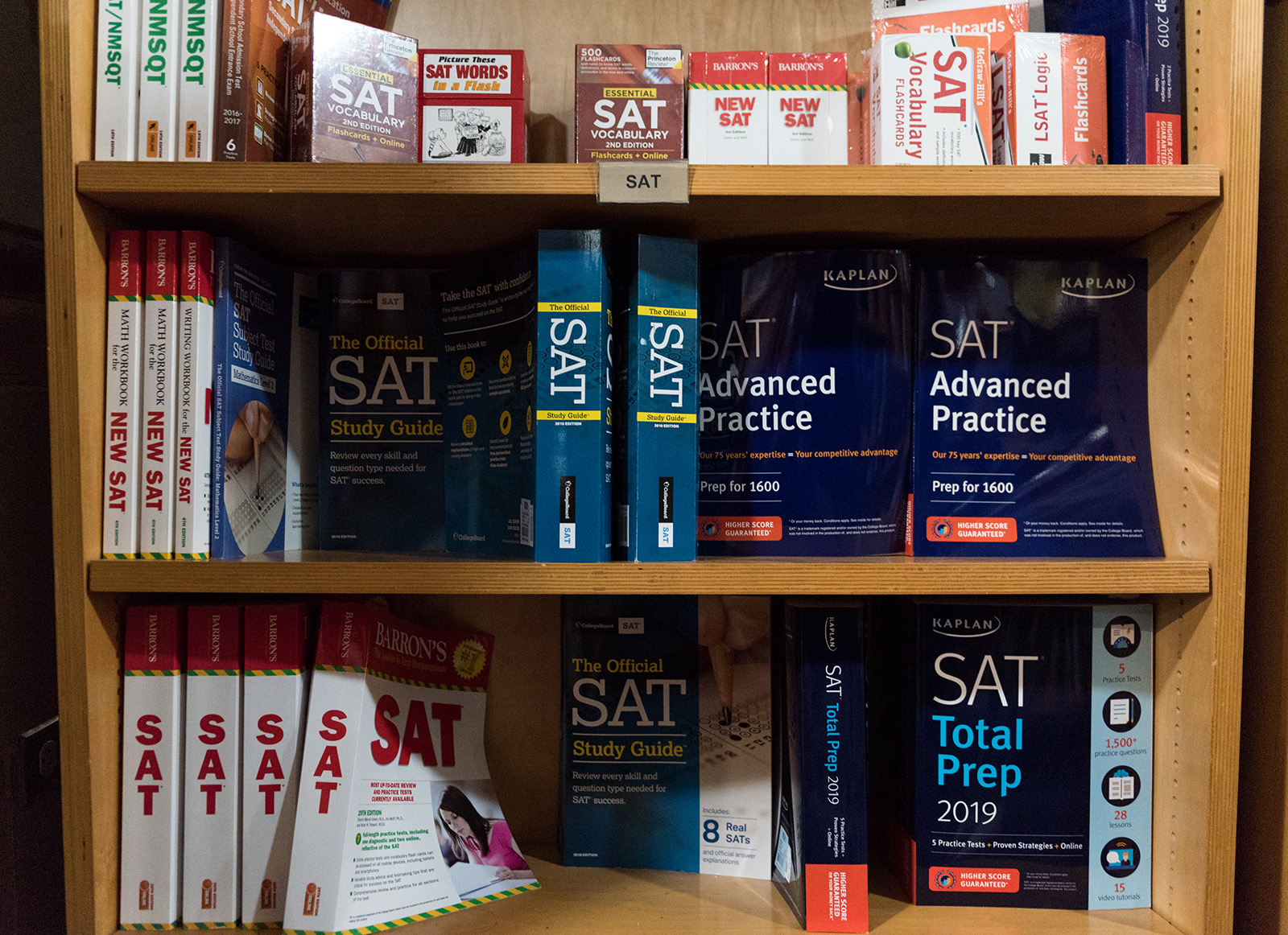Standardized test scores are a necessary assessment to equalize UC admissions

Standardized tests do as they say: standardize. Universities like UCLA have to consider tens of thousands of applicants from thousands of schools, each with their own grading tendencies and schemes. Tests like the SAT and ACT put these students on a level playing field. (Liz Ketcham/Assistant Photo editor)
By Avvalzameer Bhatia
March 5, 2019 10:50 p.m.
Each year, tens of thousands of students from thousands of schools across the globe vie for the chance to call themselves Bruins. One of the few things unifying that massively varied applicant pool: sitting at a desk and taking the SAT – or the ACT, if that’s your cup of tea.
Standardized test scores are one of 14 factors the University of California uses to comprehensively review admissions applications and assess a student’s readiness for college. But many students have complained about the effectiveness of standardized test scores in determining college success.
Recently, Beyond the Score, a student organization that seeks to challenge the use of standardized tests in University admissions, hosted a town hall to raise awareness about the drawbacks of requiring that applicants take the SAT or ACT. Members of the organization called the tests inherently racist, claiming the structure of standardized tests disadvantages minorities, people of color and students from lower-income families who can’t afford preparatory courses.
However, standardized tests also have a number of advantages. Test scores allow universities to put applicants from various backgrounds with different academic and grading systems on a level playing field. This gives students with inflated or deflated high school GPAs a fair opportunity to demonstrate their skill sets and knowledge of core concepts expected of university admits.
The UC Academic Senate is in the process of reviewing the role of standardized testing in the admissions process, at the request of UC President Janet Napolitano. Specifically, the academic task force is working toward determining the validity and usefulness of standardized test scores and high school GPAs in the admissions process.
But it’s crucial standardized tests stay in place. Tests such as the SAT and ACT act as equalizers for applicants, making things fairer, especially for international students who come from various backgrounds and academic systems.
Ricardo Vazquez, a UCLA spokesperson, said standardized tests provide a uniform reference point independent of individual high schools’ grading systems or rigor, contributing to the fairness of the UC admissions process.
He’s right: Standardized testing puts applicants on an even playing field. Students around the world are exposed to questions that test their knowledge of the same English and math concepts and are expected to finish the test in a set time limit. Additionally, all tests are graded on the same scale and generally have a consistent level of difficulty, making them a fair avenue for students to demonstrate their skills and readiness for college.
Test scores also act as a counterweight to the variability of applicants’ high school GPAs.
“My high school precalculus class was extremely easy when compared to those offered by other local public schools,” said Olivia Schulist, a third-year society and genetics student. “It would not have been fair to base a decision regarding my admission solely on my high school GPA.”
Standardized tests are even more important when comparing the academic competence of international students.
The UC admissions pool is comprised of students from all over the world, and countries across the globe follow different academic programs and grading scales. Many of these programs tend to be more challenging, time-consuming or simply different from those followed by American high schools. It’s important to have at least one common standard to cut across the diverse applicant pool.
Standardized tests offer just that.
Priscilla To, a third-year business economics student, said in her hometown of Hong Kong alone, schools follow myriad academic systems, such as the local Hong Kong Diploma of Secondary Education, the International Baccalaureate, the American Advanced Placement and the British General Certificate of Education.
“These different academic systems vary in difficulty and emphasize different skills,” To said. “Standardized testing enables universities to understand a student’s performance.”
Additionally, standardized tests allow universities to set a bar for their admits. A university’s admitted-student SAT score range allows applicants to better understand the university’s requirements and make informed decisions regarding their applications.
“I think the SATs are important to gauge the academic standing of applicants and establish a benchmark for admission to a particular university,” said Aditi Ganesh, a third-year economics student.
They also add a sense of predictability to the admissions process. Applicants can expect higher chances of admission if their scores on standardized tests fall in the top 25 percent of previously admitted students’ scores. This allows them to be more pragmatic about the universities they apply to.
Of course, standardized tests can appear to disadvantage lower-income students who cannot always afford to pay for lessons, study materials and practice tests. These students can struggle to cover the cost of taking the test and sending scores to universities.
Despite these barriers, the solution clearly isn’t removing standardized testing altogether. The UC already takes applicants’ socioeconomic background into account and compares their scores on standardized tests with others from similar communities and backgrounds. By using a holistic admissions process, the UC is able to compare applicants from all backgrounds on a level ground.
With over 100,000 students’ admission decisions on the line, UCLA must be more objective than ever. And until a better alternative is found, the SAT and ACT are the best we have.

